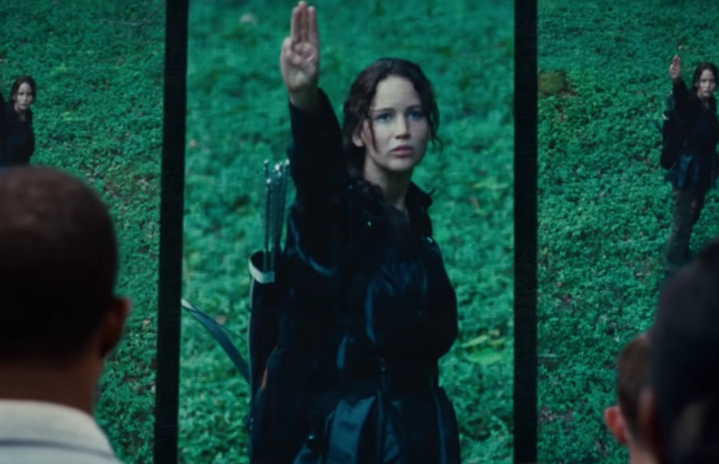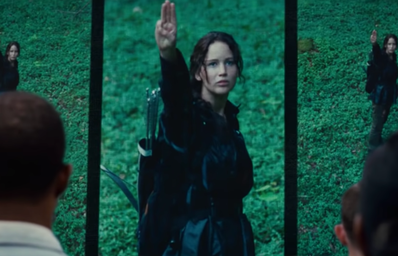As the release date for The Ballad of Songbirds and Snakes film draws nearer (17th November), I’m sure many of you, like me, are anticipating it with increasing excitement! Having been around 8 years since Part 2 of the Mockingjay was released, I am ready for a resurgence of the 2010s dystopian genre Hunger Games era.
I first read The Hunger Games trilogy when I was around 11 years old and loved them, but earlier this year I re-read and appreciated the books, if possible, so much more, in being able to read them from an older perspective. I think one of the brilliant features is how you can read them on so many different levels, not only for the action but for the wider political commentary and symbolism they offer. After finishing my re-read of the trilogy I went on to read the 4th book for the first time despite it having been out since May 2020. I was initially wary going into the book, fearing it was a prequel written just to ride the success wave of the trilogy, but I seriously misjudged Suzanne Collins; I thought the book was brilliant, particularly the second half where we get a location change. Without spoilers – the book adds so much backstory that is relevant to the original trilogy so that when you go back and re-read it, it’s all the richer – and I believe this indicates a successful prequel. Whilst keeping with the themes and tone of the trilogy, the prequel explored the themes of corruption, love, control, the nature of war, performances, and sacrifice in its own way.
I thought it might be nice to share some hopes and predictions for the film from the book-fan perspective. I will be briefly referencing certain features of the book but there will be no major spoilers included and will mostly reference moments of what we’ve seen in scenes of the film trailer. I will follow up this article in 2 weeks with another spoiler-filled one, where we can delve deeper into these topics once everyone’s had the opportunity to watch the film!
Taking place during the 10th Hunger Games (as opposed to the first film of the games where we see Katniss Everdeen in the 74th), the story takes us to a much earlier time in Panem’s history, in which we see the Hunger Games starting to mould into how it is in Katniss’ day. We also follow along the origin of the story’s main character, Coriolanus Snow, who we know from the original trilogy as President Snow, as he mentors Lucy Gray Baird, a tribute from District 12.
I was personally glad that director Francis Lawrence, who directed Catching Fire and both Mockingjay films, was directing the new film, as it gives me hope that it will just as successfully capture the emotional heaviness and tones the other films did so well. One of my favourite things about the film adaptations is the emotional accuracy they seem to have, covering the importance of hope, but also capturing the sacrifice and pain endured by so many characters throughout the series.
The cast looks promising as well! I was so pleased with Viola Davis as Dr Gaul, I think she will be a superb fit (and from what we’ve gotten from the trailer, she seems as terrifying in the role as she needs to be).
Book readers will know the importance of the theme of music in The Ballad of Songbirds and Snakes to the Covey, particularly its features in the second half of the book. The prequel takes us back to the origin of certain songs we see in the original trilogy. The motif of music is used frequently in The Hunger Games trilogy – for example, ‘The Hanging Tree’ which Katniss sings to Rue, and how Katniss starts to sing alone in her room towards the end of Mockingjay in the aftermath of the war. Songs are used as messages, propaganda, codes, and are representative of hope, symbolising reconnecting with one’s own voice. For book fans, it’s especially important to finally get to hear the many songs from the book with all its musicality, not only its lyrics. Lucy Gray (Rachel Zegler) singing ‘The Hanging Tree’ in the film trailer was a chilling parallel to Katniss singing it. I hope they use features of the original trilogy’s film score in the film too, which I think perfectly capture the emotional weight of the story.
From the trailer and images we’ve gotten so far, it looks like the new film, whilst keeping with the tone of Panem from the existing films, has independently developed clothing in the new films in a style suitable for 60 years previously to what we see in the first Hunger Games film. Lucy Gray’s rainbow dress seems the perfect balance of elegance, and I’m curious to see how they depict the arena for these games in particular.
To me, most of the brilliance of the book is in getting to see the slow change of Snow’s internal monologue, following the downfall in his thoughts. In a film adaptation, we don’t have that internal monologue, instead, we rely on the expressions of the actor. I’ve got my fingers crossed that this will be shown just as successfully on screen as it is in the book, and we’ll be made to root for him against our will before things start to change. I would also love it if we got to hear Donald Sutherland’s voice in the film (who played President Snow in the original trilogy).
I’m certain the references to Katniss, however indirectly (which I loved in the book!) will make it into the film, as an appropriate and appreciated tie-in for audiences. The scene I’m most excited about in the adaptation is the last scene by the lake. I absolutely loved Collins’ masterful symbolism in it, which ties in so well with the title of the story (book fans, if you know you know). When Snow has a certain realisation – I can’t wait for the expression on Snow’s (Tom Blyth) face at that moment!
The ending of the story is one of my favourite moments of symbolism from the book, and I’m curious if the film adaptation will try and make the ending more concrete, or work in any of the theories circulating from the ending, including a particular link speculated between Katniss’ heritage and some of the characters. I’m hoping they follow the ending quite similarly to the book, but I have a feeling they may decide to make it more concrete.
I’m planning to follow up this article with my next one once the film is out, where we can discuss both the book and film comparisons, differences, symbolism, and favourite features, openly without the worry of spoilers. Some of the things I’m keen to touch on include the symbolism of names, food, snakes, songs, the Mockingjay, beauty, love, freedom, and control. I will be reviewing and sharing thoughts after seeing the film. See you then!


